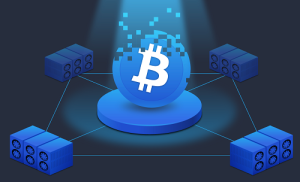
Unveiling the True Costs: A Comprehensive Bitcoin Mining Cost Analysis
Bitcoin mining has been a lucrative venture for many, but understanding the true costs involved is crucial for success in this competitive landscape. In this comprehensive Bitcoin mining cost analysis, we’ll delve into the various factors that contribute to the overall expenses, helping miners make informed decisions.
1. Hardware Costs: Investing in the right mining equipment is the first step. ASIC (Application-Specific Integrated Circuit) miners are popular for their efficiency, but they come with a substantial upfront cost. Balancing initial investment with expected returns is key.
2. Energy Consumption: The major ongoing expense in Bitcoin mining is electricity. The energy consumption of mining rigs is measured in kilowatt-hours (kWh). Miners need to assess the power efficiency of their hardware and choose locations with affordable electricity rates to optimize profitability.
3. Cooling and Ventilation: Mining rigs generate heat, and maintaining an optimal operating temperature is crucial for efficiency. Cooling systems add to electricity costs, and miners must factor in the expenses associated with keeping their equipment cool.
4. Maintenance and Repairs: Like any machinery, mining hardware requires regular maintenance. Miners should budget for potential repairs and replacements, ensuring their rigs operate at peak performance.
5. Location and Climate: Choosing the right location can significantly impact costs. Areas with lower ambient temperatures reduce the need for extensive cooling, while regions with affordable electricity rates can boost overall profitability.
6. Mining Pool Fees: Many miners join mining pools to combine computational power and share rewards. While this enhances the chances of receiving consistent payouts, miners need to consider pool fees that can range from 1% to 3% of earnings.
7. Software and Connectivity: Mining software is essential for managing and optimizing mining operations. Miners must factor in the costs associated with software subscriptions, updates, and reliable internet connectivity.
8. Regulatory Compliance: Compliance with local regulations may involve licensing fees or additional costs. Miners should be aware of legal requirements in their jurisdictions and budget accordingly.
9. Market Volatility: The value of Bitcoin is subject to market fluctuations. Miners should consider the potential impact of price volatility on their profitability. Downturns in the market can significantly affect the USD value of mined Bitcoin.
10. Future Upgrades: To stay competitive, miners may need to upgrade their hardware over time. Budgeting for future upgrades ensures miners remain efficient and can adapt to changes in the mining landscape.
In conclusion, a comprehensive understanding of Bitcoin mining costs is vital for miners to make informed decisions and maximize their profitability. By carefully evaluating hardware, energy consumption, maintenance, and external factors, miners can navigate the complexities of the mining industry and build a sustainable and lucrative mining operation.